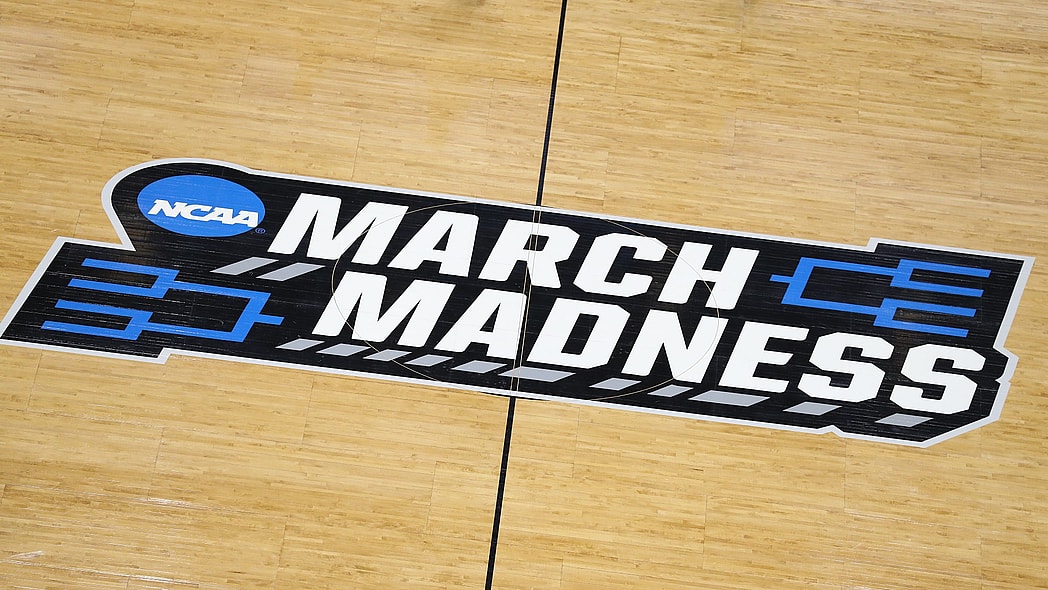March Madness is back, signaling a return of office pools, watch parties, and—if we’re lucky—a bunch of buzzer-beating baskets throughout the tournaments.
It’s also a fine time to recall a dirty detail about this vast enterprise, a little fact that big-time college hoops shares with big-time college football. Recent relaxations of NCAA rules might have obscured the truth and pushed it out of mind, but the reality remains unchanged, so don’t get it twisted.
Players are still exploited.
In 2010, CBS and the Turner Broadcasting System signed a 14-year deal worth $10.8 billion (average $770 million per year) for broadcast rights to the NCAA men’s tournament. They extended the pact in 2016, tacking on another eight years, with the NCAA average haul jumping to $1.1 billion starting in 2025. In college football, TV revenues are projected to exceed $1 billion in 2024-25. None of this includes funds that schools receive from their individual conferences.
Consider this a friendly reminder: Players aren’t compensated for the labor that produces ginormous bags for everyone else, from coaches making eight figures, athletic directors making seven figures and down the line.
Former Ole Miss basketball player Kylia Carter—mother of Orlando Magic forward and former Duke star Wendell Carter Jr.—nailed it during remarks to the Knight Commission on Intercollegiate Athletics in 2018. She said the NCAA is a system “where the laborers are the only people that are not being compensated for the work they do while those in charge receive mighty compensation. The only two systems where I’ve known that to be in place are slavery and the prison system.”
I know you’re thinking, “That’s changed. What about players’ deals for their name, image, and likeness? The NCAA allowed them to start making loot on NIL last summer. Doesn’t that count?”
Yes, it does.
But that does not cover the money-making sweat athletes break on their schools’ behalf.
Imagine we’re talking about the car industry, with Power 5 conferences as automakers and individual schools as models. Let’s say the Atlantic Coast Conference is Toyota and Duke represents Camrys; the Southeastern Conference is Chevrolet and Alabama represents Impalas; the Big Ten is Ford and Michigan represents Explorers; etc.
The assembly-line workers put in long hours and gain a measure of celebrity for their skill, expertise, and artistry. Toyota and particularly Camry builders are stars among basketball fans. Chevy and especially Impala builders draw a massive following among football fans. Ford and, notably, Explorer builders enjoy wide crossover appeal within both circles.
Businesses take note and decide some workers could be useful in advertising campaigns locally and perhaps nationally. Deals are made, and workers begin appearing on billboards, commercials, and promotions. Nice side-hustle for the workers, right?
Until you learn they toil on the assembly lines for free.
Critics complained about the arrangement for years, but the national association of automakers (the NCAA) always said its workers were paid in other ways—just not with money. Even worse, the companies threatened to fire workers who made any dough. Finally, with pressure mounting from politicians and workers’ rights groups, the automakers relented.
But only to the point of greenlighting side gigs!
Withholding athletes’ NIL rights should’ve been illegal from the jump. How are you gonna tell some students (athletes) that they can’t profit off their own name, image and likeness, yet other students (non-athletes) are free to stack paper as high as possible?
Now, just because the NCAA has ended one jacked-up practice, we’re supposed to forget about the other one, the free labor on the assembly line? No.
It’s still a rip-off.
The workers can’t even get comfy with their new rights because the bosses are mad. Accustomed to controlling every aspect of their student-athletes, the NCAA is looking to dial it back on NIL. Athletes making money and enjoying the freedom to easily switch schools—just like coaches—is too much to swallow. “We expect that all members and their representatives are abiding by current NCAA rules regarding recruiting and pay-for-play, which are in place to support student-athletes,” NCAA President Mark Emmert said.
If he really wants to support the athletes responsible for a multi-billion-dollar industry built on basketball and football, there’s an easy solution.
Stop the madness and pay them.

An award-winning columnist and a principal of BlackDoor Ventures, Inc., Deron Snyder is a veteran journalist, stratcomm professional, author, and adjunct professor. A native of Brooklyn and an Alpha from H.U.-You Know, he resides in metropolitan DC with his wife, Vanessa, mother of their daughters, Sierra and Sequoia. To learn more, please visit blackdoorventures.com/deron.
TheGrio is FREE on your TV via Apple TV, Amazon Fire, Roku, and Android TV. Please download theGrio mobile apps today!


